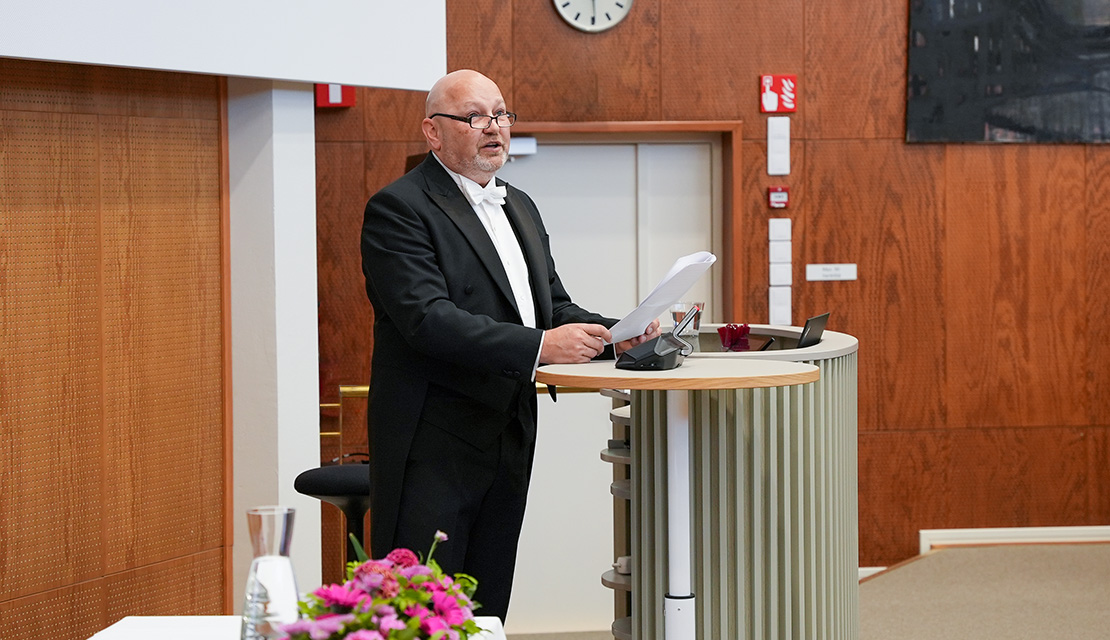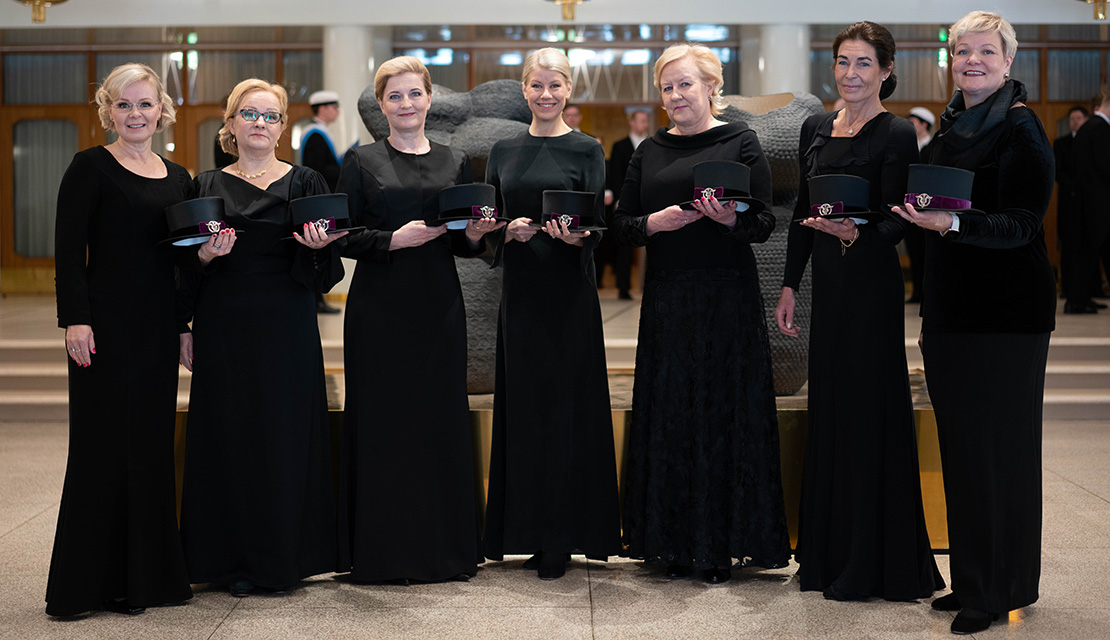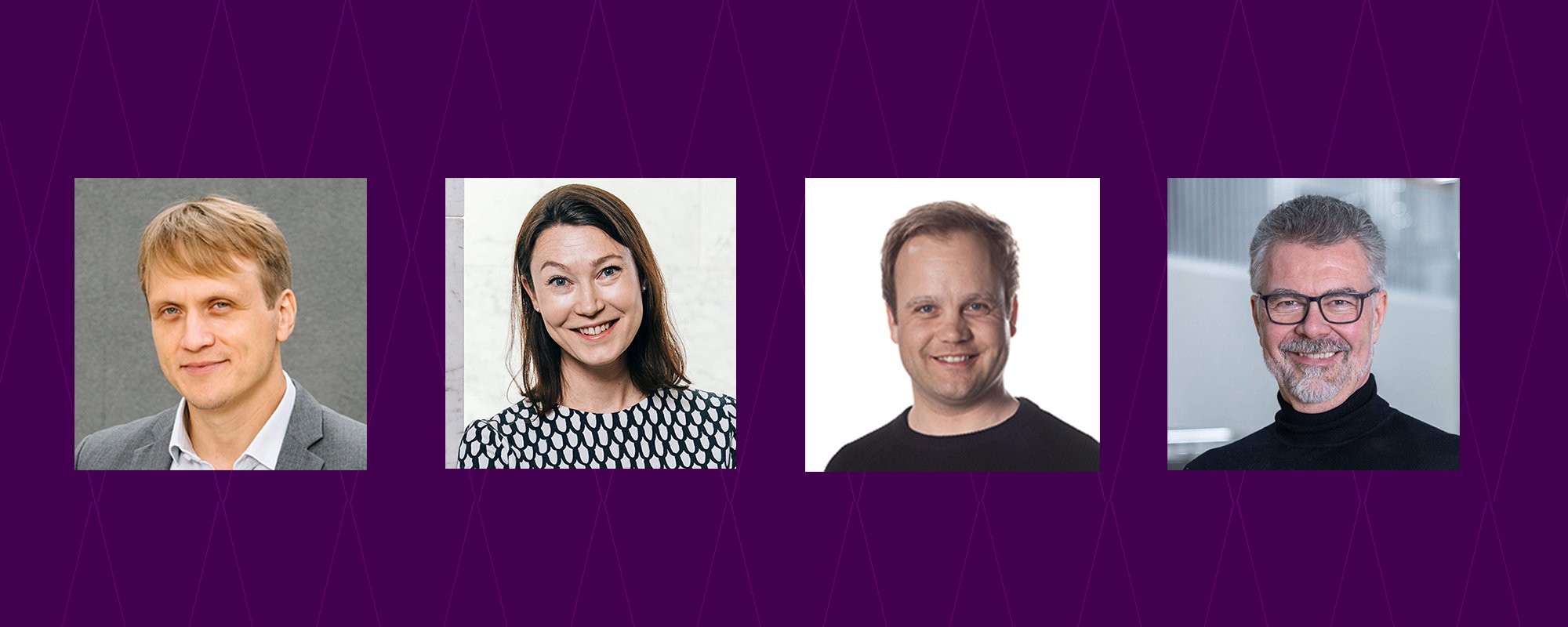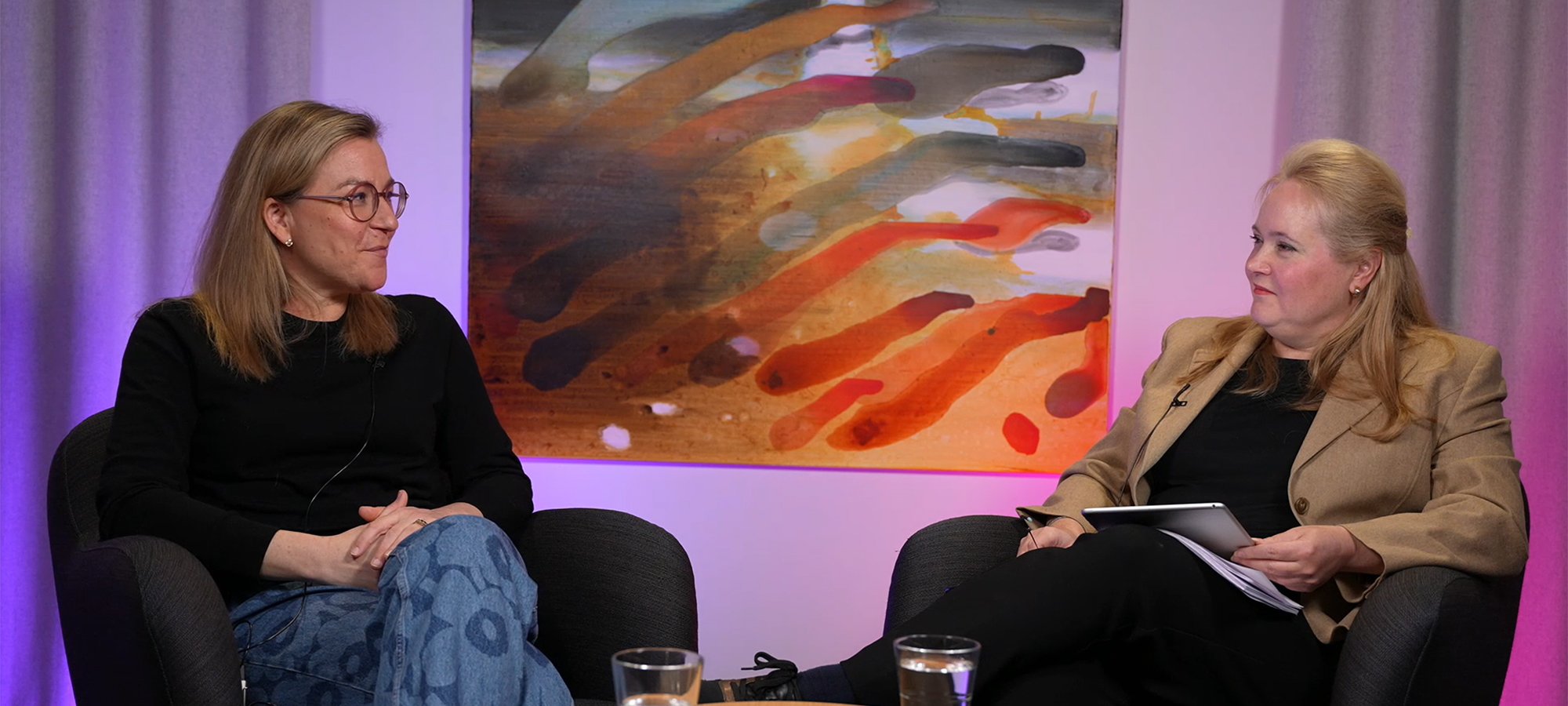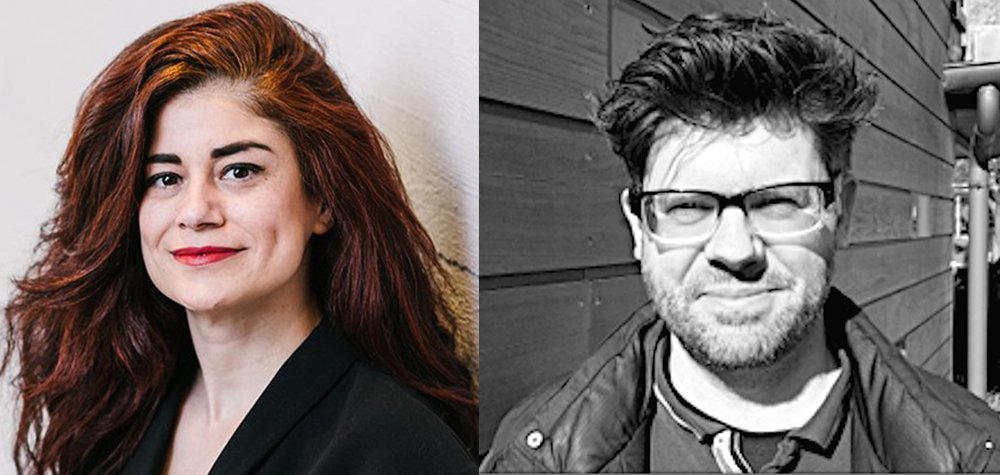DBA Program Deepens Understanding and Boosts Capacity
A DBA degree is a big challenge, but those who wish to complete their own doctoral dissertation can expect the valuable support of Aalto’s experienced researchers. According to the program’s doctoral graduates, the dissertation project benefits not only doctoral candidates but also their employers and the scientific community at large.
Heidi Hammarsten, 17.08.2023
| ArticlesDBA (Doctor of Business Administration) is a doctoral program for experienced leaders. To date, the program has resulted in 11 completed dissertations. But what inspires someone to take on the challenge when their career is already proceeding at full speed with plenty of work-filled days?
According to Program Director Patrick Furu, each participant has their own reasons and motivations.
“What unites our students is their passion for delving deep into a specific topic. They want to become genuine experts in a particular subject, and they also want to show that they have the chops to complete a doctoral dissertation,” Furu notes.
Elina Kukkonen was the first doctoral candidate to graduate as a doctor from the DBA program in 2016. Kukkonen’s career in marketing at Alma Media, a major Finnish digital services and media company, led to a doctoral dissertation that focused on customer relationship management in the digital age.
“To an extent, my topic was informed by my master’s thesis, which focused on data-driven customer relationship management. My entire career has revolved around digitalization, which is a topic that has always intrigued me. I wanted to investigate how online stores can increase the durability of their customer relationships and what other, non-financial value they can gain from their customer relationships,” Kukkonen says.
What unites our students is their passion for delving deep into a specific topic."
Sari Haavisto, who defended her doctoral dissertation in 2021, worked for a group of marketing and media agencies when she began her doctoral project. Her original focus was on lifelong learning and organizational learning management. However, she decided to attend a course on business history before finalizing her topic.
“It turned out that no one had studied the history of the Finnish advertising industry before – and when I found this out, I was instantly hooked! However, I really had to limit my scope, so I decided to focus on the ten largest marketing agencies in Finland,” Haavisto explains.
When Jukka Honkaniemi, the program’s most recent doctoral candidate, started his DBA journey six years ago, he was working in corporate finance at SEB, a large Swedish bank. Honkaniemi was interested in sustainable finance, which, back then, was a new topic that had attracted the interest of only a select group of people.
“My idea was to conduct quantitative research on SEB’s new sustainable finance process, but I couldn’t obtain any data in time since the process was never implemented,” Honkaniemi recalls.
Honkaniemi shifted his career during the dissertation, which also meant a change to the focus of his dissertation. While sustainable finance still played a major role in it, two of its three articles dealt with responsible finance in SMEs in the form of a research review and case study.
Surprises during the DBA process
Since Kukkonen knew what she wanted to research, her dissertation process was relatively straightforward. However, she still needed the assistance of her academic peers to narrow down her topic. She ended up with three articles that dealt with different aspects of the customer experience: the customer experience itself, the value of customer engagement, and relationship value management. Her methods focused on data analysis and surveys.
“I was surprised when, at a research meeting, a representative of the academic world commented that ‘there’s no science to customer experiences’ – despite the fact that I had found over 14,000 articles on the subject. I realized that I had to keep a cool head and find the scientific arguments I needed with the methods that I’d learned. I just needed to dive deep enough into my articles,” recounts Kukkonen.
Haavisto’s theoretical frameworks were “strategy as process and practice” and “marketing as practice”: she examined Finnish marketing from a strategic perspective as well as from the perspectives of middle management and practical activities. She sourced her material from a variety of locations, such as the Confederation of Finnish Industries’ central archives in Mikkeli, as well as old invoices and media article contracts.
I never knew that I could be such an in-depth researcher after 30 years in the business world. But that’s where my passion for academic research was born."
“I never knew that I could be such an in-depth researcher after 30 years in the business world. But that’s where my passion for academic research was born. I realized that the Finnish marketing industry hadn’t developed solely through the efforts of one or two individuals but through the combined efforts of the entire field. People came up with all sorts of new ideas and innovations that they then developed together.”
During her research, Haavisto was surprised to learn the sizeable role that Finnish “ad men” played in the nation’s propaganda efforts during the Winter War and Continuation War. For example, Wäinö K. Latvala, whose legendary agency also bore his name, was responsible for leading Finland’s psychological warfare activities, and he was also a founding member of Finland’s propaganda union and news agency.
According to Honkaniemi, few people were interested in sustainable finance when he began his DBA dissertation six years ago.
“It was early days for sustainable finance in Finland, and the themes of the field were still thin on the ground. Luckily, Hanna Silvola agreed to supervise my doctoral thesis. She is a pioneer in the field in Finland, and she was also interested in providing academic guidance to a bank manager. I was also able to convince Hedon Blakaj to act as my second supervisor, and he provided me with valuable support on my journey to becoming a researcher and doctoral student.”
Honkaniemi was surprised by the strict demarcation between qualitative and quantitative approaches. He also noticed the slow pace at which any new research themes are adopted by the academic world, since most researchers prefer to promote their careers through a reliable focus on what they have studied before. In comparison, DBA doctoral candidates are given more freedom to tackle new topics from working life, since they do not have to worry about the progression of their academic careers.
|
|
| Jukka Honkaniemi defended his DBA dissertation in the spring of 2023. Photo: Johnny Jussila |
Tuning into academia
As the program’s director, Patrick Furu is responsible for ensuring that the program’s contents remain relevant and up to date. The program lasts for around three years and, in addition to the doctoral dissertation, includes around ten courses. Three of these are mandatory, while the rest are selected according to each doctoral candidate’s personal needs and preferences.
Aalto University Lecturer Hedon Blakaj instructs the DBA program’s participants in qualitative research methods, and he has also supervised several doctoral dissertations. According to Blakaj, while the program’s doctoral candidates are seasoned professionals who know their fields inside and out, the program’s courses can still provide them with valuable new insights.
“After I introduce them to the rules of the game, they oftentimes have these ‘Aha!’ moments. They recognize that this is not necessarily like writing an industry report; there’s much more to it. There’s a more active intellectual element that is required of them.”
After I introduce them to the rules of the game, they oftentimes have these ‘Aha!’ moments."
Blakaj notes that the program’s doctoral students appreciate the training and mentoring that is constantly available to them.
“These courses are tailored to fit their research projects. The idea is to help them out with thinking about theory, research questions, methods, data collection, data analysis, and so on. I lecture to groups of one to three people, so the teaching is always very dynamic, and I’m able to forge a personal relationship with them.”
Elina Kukkonen also agrees that the program’s students get to collaborate closely with their supervisors.
“The DBA program is unique in the sense that it encourages continuous dialogue with your instructor. You can always be sure that your instructor is there for you online whenever you need them.”
DBA program supports business development
The program’s doctoral candidates emphasize that the DBA program benefits a wide range of people and not just the doctoral candidate.
“I don’t think that Finnish companies understand how well DBA dissertations can support their business development. It’s not just an investment in people, but a win-win-win where the company, the participant, and the academic world all gain something new,” Sari Haavisto explains.
Elina Kukkonen, who still works for the same company, has since been promoted to the position of Marketing and Communications Director after her doctoral dissertation process. The customer relationship management model she created as part of her dissertation has generated a great deal of interest, as the topic is related to the operations of nearly every organization.
“I’ve been able to benefit from my work on a continuous basis. You could say that it’s a topic with a long shelf life, and it affects a wide range of companies. Right after my doctoral dissertation, I spent a considerable amount of time talking to my employer’s customers and subcontractors. I have also spoken at Aalto University, and many actors in the public sector, such as the Hospital District of Helsinki and Uusimaa (HUS), have also expressed their interest in my work.”
For me, it represents personal equity, something that can never be taken away from me. My employer also gained enormously from this."
For Kukkonen, the dissertation process provided a deeper understanding of the topic and valuable lessons in managing complex issues.
“For me, it represents personal equity, something that can never be taken away from me. My employer also gained enormously from this, and my personal capacity has increased since I had to fit the process alongside my daily work. I’ve certainly improved my tolerance for stress and pressure, as well as my ability to dive into new issues.”
|
|
| Doctoral graduates from the Aalto DBA program at the Ceremonial Conferment of Aalto University School of Business in the spring of 2022. In the photo: Pauliina Airaksinen-Aminoff (left), Sari Haavisto, Margit Suurnäkki, Susanna Takkunen, Riitta Lumme-Tuomala, Elina Kukkonen, and Eeva Ahdekivi. Photo: Otso Alasko |
After graduating, Sari Haavisto began teaching at Haaga-Helia University of Applied Sciences, focusing on topics such as marketing, communications, and qualitative research methods. She finds that her experience as a researcher has allowed her to support her students in a completely different way.
“My doctoral dissertation showed that the Finnish marketing industry developed through the discussions between actors throughout the entire field. Much in the same way, today’s students should work together and be able to apply theory through their own projects. This creates the best learning experiences and a deeper understanding of the topics at hand.”
According to Haavisto, the historical research in her dissertation will never go out of date. Her doctoral dissertation also attracted the attention of both media outlets and the people in the field.
“My goals for the future include writing scientific articles based on my work, and I’m also looking into popularizing my research and making it more accessible to everyday people. I’m also thinking about how we could work to get away from the periodization of marketing research used in American research, as it’s the completely wrong way to approach the topic from a Finnish point of view.”
Honkaniemi’s doctoral dissertation is still very new, but it has already helped support his career: he has founded a consultancy that specializes in promoting responsible business in SMEs.
“My company’s goal is to provide banks and financiers with the right information on ESG risks for SMEs and to involve as many SMEs as possible in the green transition. I have worked in traditional banking for 30 years, and my dissertation has now given me the diploma I need to dive headfirst into the world of sustainable finance.”
DBA?
The Aalto Executive Doctor of Business Administration (DBA) is a structured program in Business Administration for experienced individuals with considerable managerial experience who wish to contribute to the development of their professional competence and their key areas of interest.
More to read: What Is a DBA All About?

















